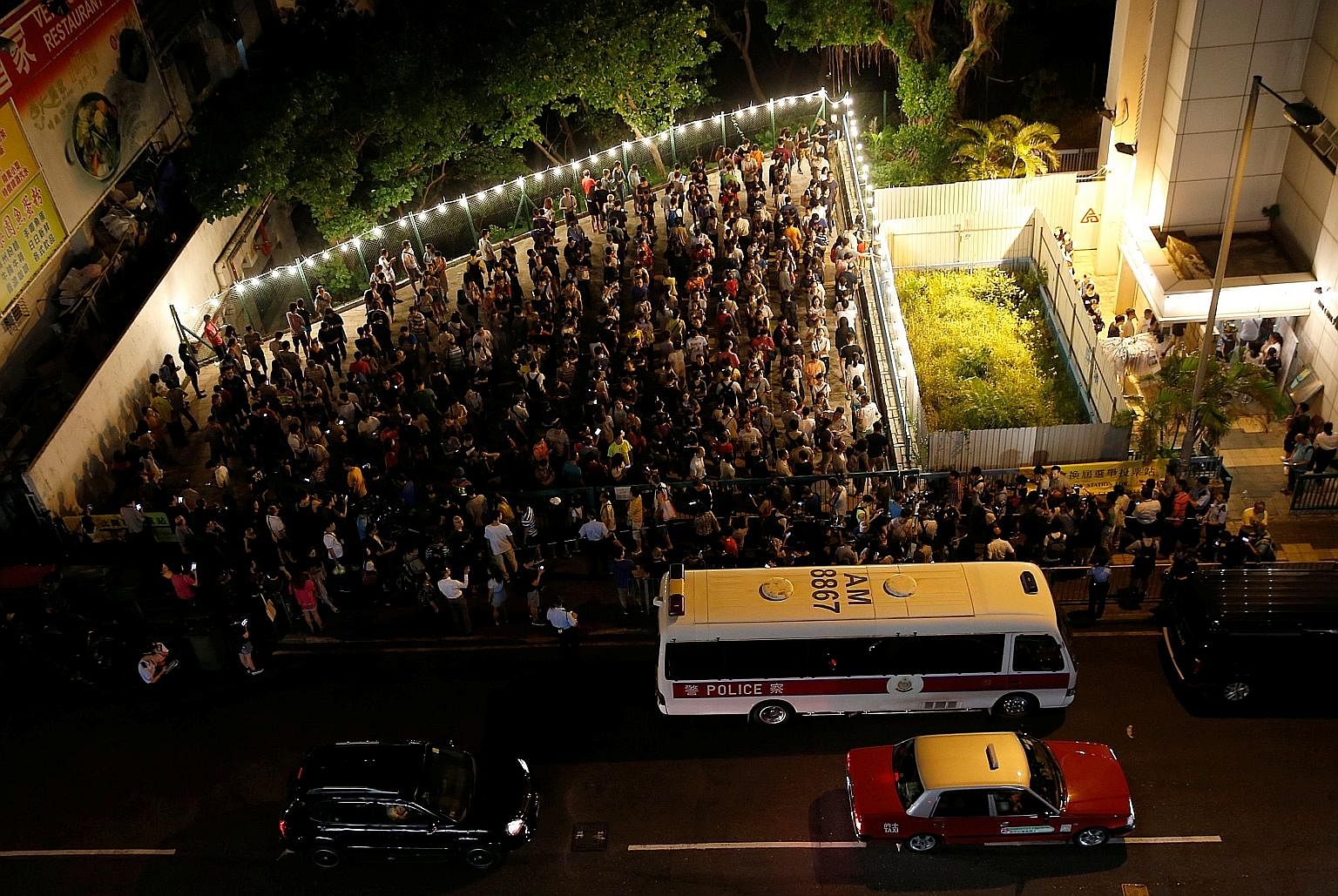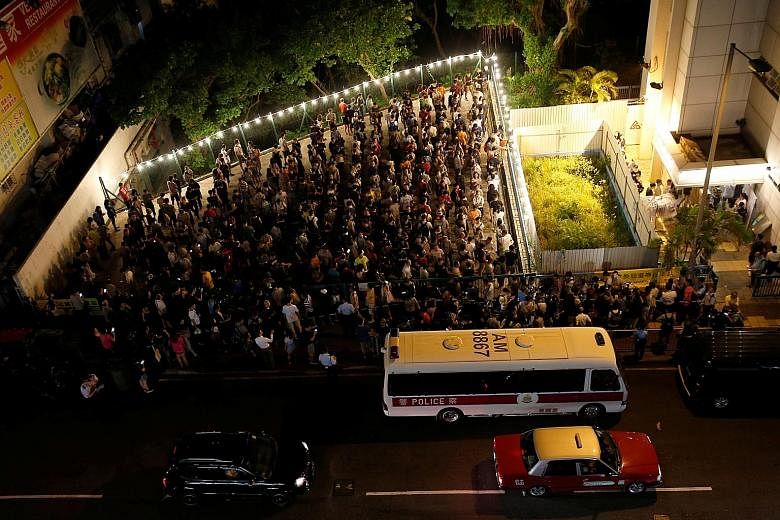Hong Kong has always been a largely conservative society with people focused on making a living, but the results of Sunday's Legislative Council (Legco) elections reveal a shift in how Hong Kongers view politics.
The record 2.2 million Hong Kongers who turned out to cast their votes is also evidence that the city's residents are now more concerned about their future and how the city is to be governed, analysts said.
And they want a new generation of lawmakers to represent them, as can be seen after veteran lawmakers like pan-democrats Lee Cheuk Yan and Cyd Ho from the Labour party lost their seats despite having good track records in serving their constituents.

In the first major election after the massive student-led protests in 2014 to push for greater democracy, Hong Kongers sent as many as seven localist candidates into the legislature.
This new wave of politicians who are fighting for self-determination and a higher degree of autonomy, many of them participants in the 2014 protests, have been dubbed localists for their desire to protect Hong Kong's culture and identity.
Some of them want Hong Kong to separate altogether from China, to which the city returned in 1997 under the One Country, Two Systems formula that grants Hong Kong a high degree of autonomy, but which residents feel has been eroded in recent years.
However, despite the opposition - the traditional pan-democrats and the young upstarts - gaining a few more seats in these elections, the pro-Beijing camp still dominates with 40 seats now in the 70-seat legislature.
The results have not changed the basic structure of politics in Hong Kong, said Professor Lau Siu Kai, vice-chair of the Beijing-backed Chinese Association of Hong Kong and Macau Studies.
In fact, the opposition camp has never been more divided, and it will be even harder for them to pull together to change the legislature, Prof Lau added.
The pan-democrats would need to cooperate with the localist camp to garner the one-third of votes needed to veto government decisions. Such cooperation was lacking during the campaign when candidates from the two sides crossed verbal swords on TV forums.
Beijing might be disappointed that its camp was unable to win more seats in order to create a new political situation in Hong Kong. But it should be more concerned with the young, radical voices that have found their way into Legco.
The election outcome has left Beijing with more than just a deadlock between the establishment and opposition camps. More radical demands and actions, and the continuation of attacks on Chief Executive Leung Chun Ying, are expected to come from the new generation of lawmakers, said analysts.
Political analyst Ivan Choy said: "If the localists try to move some motions on self-determination, they would have touched the most sensitive nerve of Beijing."
Another political analyst, Dr Willy Lam, expects Beijing to use any radical actions by the localist legislators as a basis to restrain Hong Kong's pace of democratisation even more.
When that happens, these legislators are likely to use unconventional tactics and spend a lot of time fighting on the streets after realising they can't do much in the council.
And that could mean less stability for Hong Kong in the days to come.



